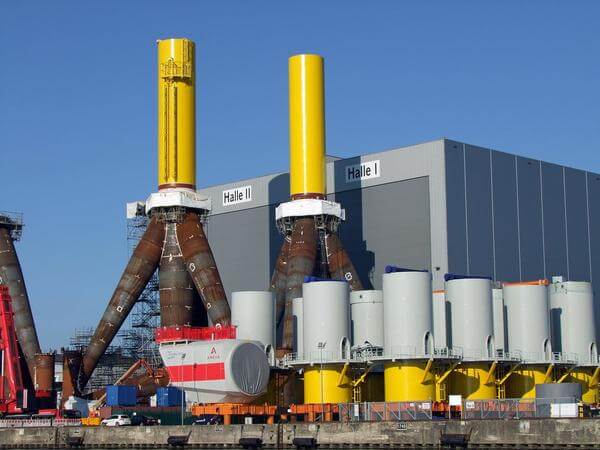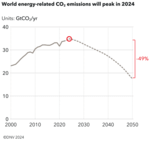News Release from windfair.net
Wind Industry Profile of
Energy transition a 'win-win-win' scenario
A number with twelve zeros. Hard to imagine, but that's a trillion. The world would save as much as twelve trillion dollars in costs if the switch to a carbon-free energy system were pulled off by 2050. That's the conclusion of a new study by Oxford University researchers, based on today's levels of fossil fuel use as a benchmark.
At the same time, the study dispels an old prejudice that fossil fuel industry representatives still like to put forward today. Lead author Dr. Rupert Way, postdoctoral researcher at the Smith School of Enterprise and the Environment, explains: "Past models predicting high costs for transitioning to zero carbon energy have deterred companies from investing, and made governments nervous about setting policies that will accelerate the energy transition and cut reliance on fossil fuels. But clean energy costs have fallen sharply over the last decade, much faster than those models expected."
And there appears to be no end in sight: "Our latest research shows scaling up key green technologies will continue to drive their costs down, and the faster we go, the more we will save. Accelerating the transition to renewable energy is now the best bet, not just for the planet, but for energy costs, too."
However, this also requires driving the energy transition consistently and at great speed. The study presents a win-win-win scenario: A rapid transition to clean energy leads to lower energy system costs than a fossil fuel system. At the same time, more energy is made available to the global economy and more people gain access to energy worldwide.
In recent years, this mechanism can be tracked very well using the example of offshore wind power: While the costs of the first offshore wind farms were exorbitantly high due to lack of experience, lack of material (such as installation vessels) and lack of commerciality, they have since fallen sharply. And experts expect prices to fall even further as more and more countries around the world become interested in building their own offshore wind industries. The potential from China alone, or Chinese companies operating outside their home market, is still in its infancy, as a new analysis by the Institute for Energy Economics and Financial Analysis (IEEFA) points out.
Similar developments are expected for floating wind farms, which are still in the very early stages of development and have yet to be built on an industrial scale. The hydrogen and battery industries also face similar developments. At the same time, the cost of nuclear power has risen steadily over the past five decades, making it highly unlikely that it will remain competitive with the falling cost of renewables and storage, according to the Oxford study.

"The more, the cheaper" - this effect can be demonstrated in the offshore wind sector (Image: Pixbay).
Nevertheless, "there is a pervasive misconception that switching to clean, green energy will be painful, costly and mean sacrifices for us all – but that’s just wrong," points out Professor Doyne Farmer, who led the study team.
Russia's war against Ukraine clearly shows where the weaknesses of the current energy system lie: energy costs are rising, dependencies on countries like Russia are causing supply shortages and leading to inflation. If the energy transition in Germany, for example, had not been delayed for so long, the current problems would be much smaller - as would the costs of switching to renewable energies. The Oxford University researchers now see themselves vindicated: "The research confirms that the response to the crisis should include accelerating the transition to low cost, clean energy as soon as possible, as this will bring benefits both for the economy and the planet."
So now is the time to act - otherwise it gets really expensive.
- Author:
- Katrin Radtke
- Email:
- press@windfair.net
- Keywords:
- Study, Oxford, energy transition, expensive, costs, trillion, fossil fuels, offshore wind power, industry, switch, hydrogen, floating


























